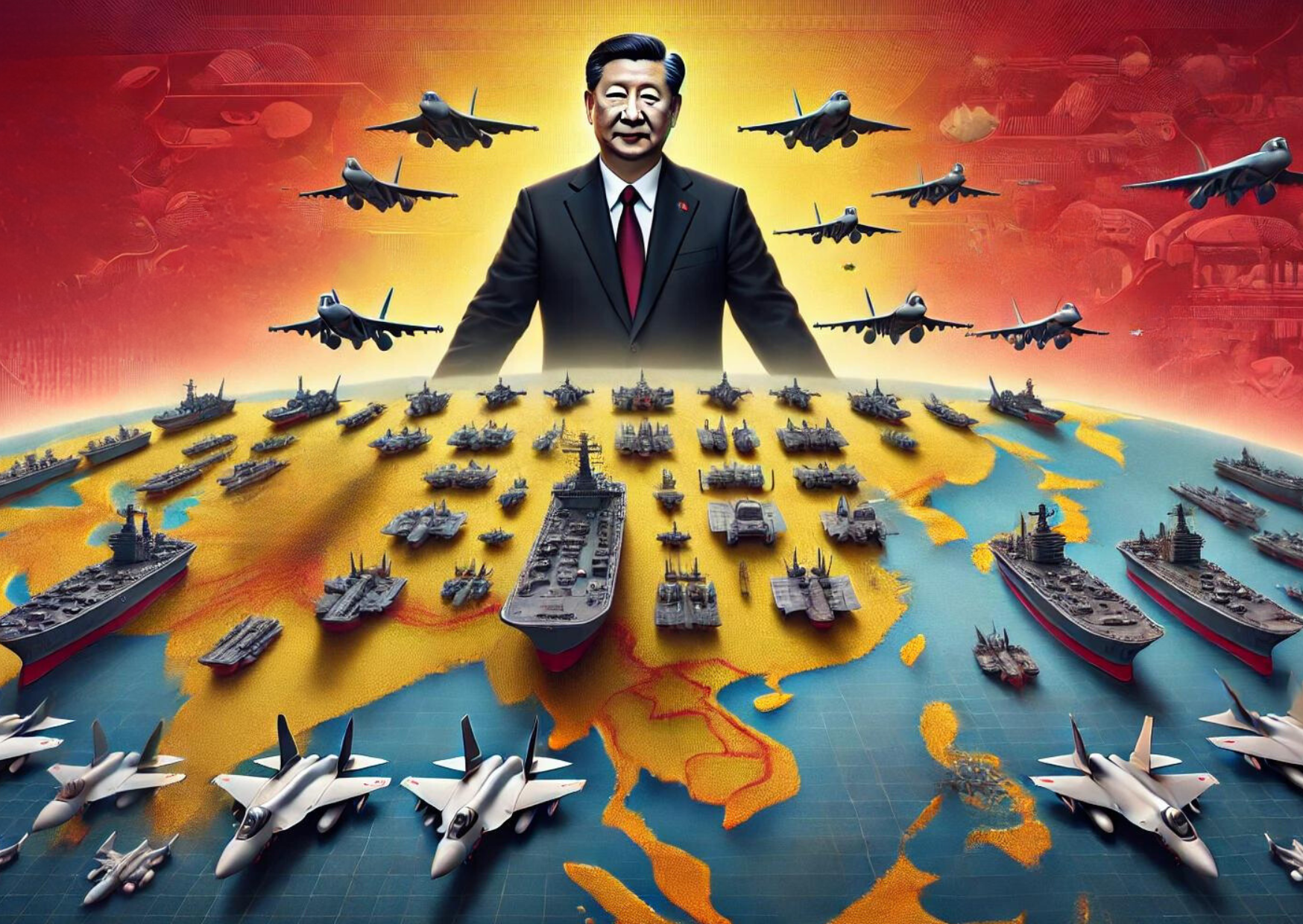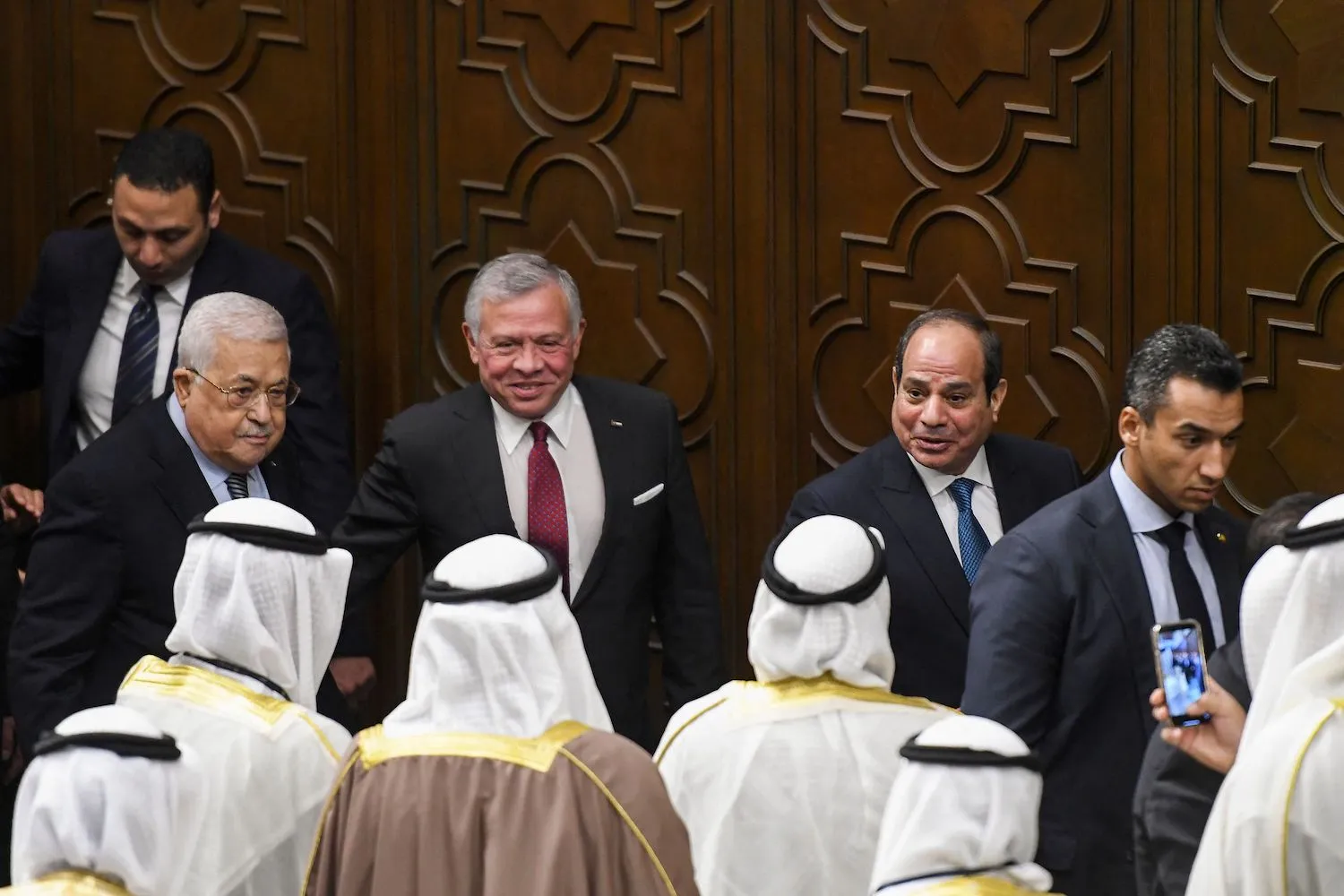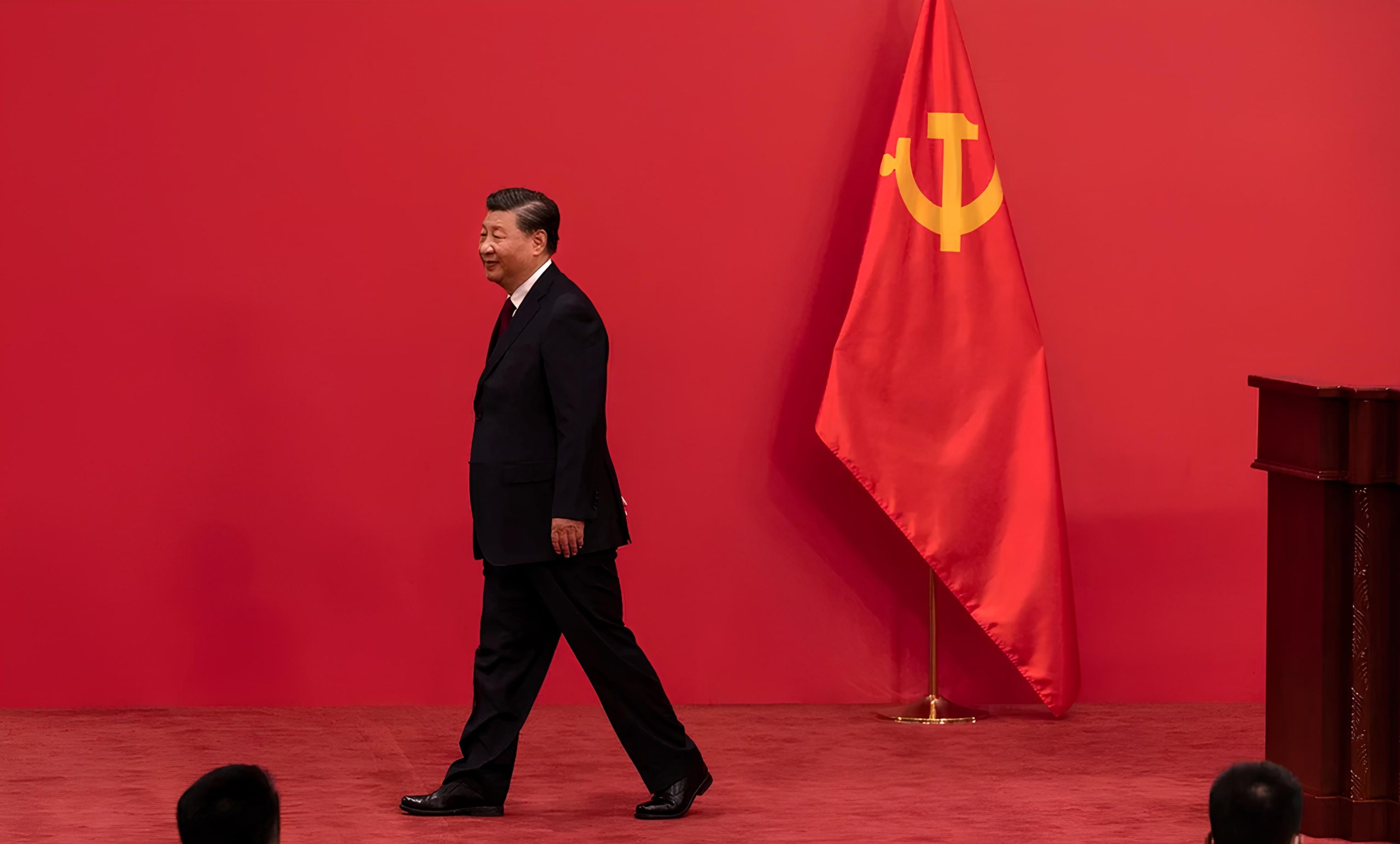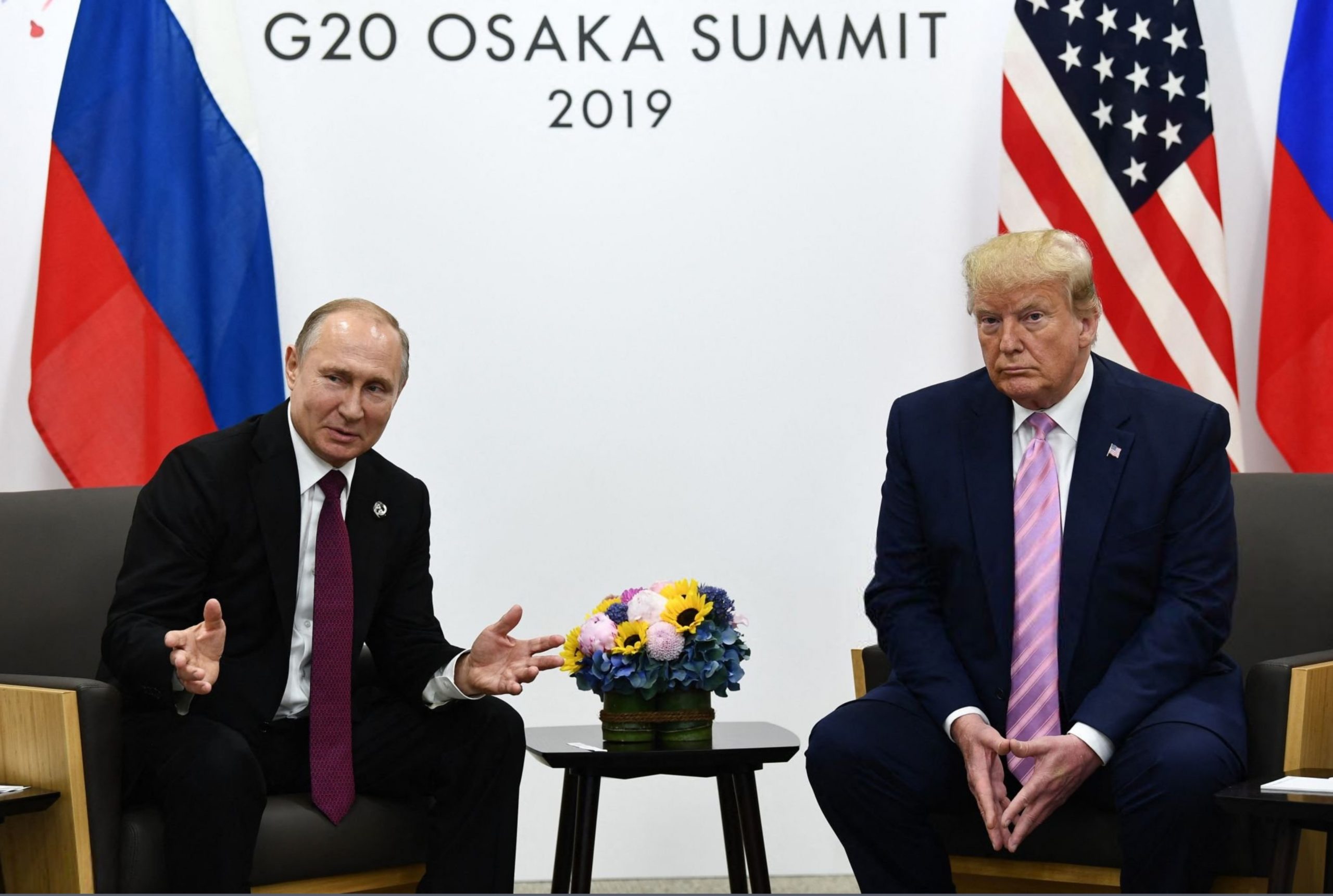
Is China Ready for Battle?
Amid escalating tensions, China’s strategic military reforms under Xi Jinping focus on enhancing the PLA’s regional readiness and asserting its global military presence.









Shifting dynamics in the Middle East signal a period where normalization efforts between Israel and Arab countries are reshaping the region, laying the foundations for a new order through strategic partnerships and mutual trust.
AUGUST 28, 2024

The Middle East holds considerable importance due to its historical events, complex dynamics, and the role of influential powers in shaping regional order. Moreover, the relations between Arab countries and Israel are shifting alliances, which is pivotal for comprehending global affairs. Specifically, the normalization of relations between Arab countries and Israel has done more than strengthen mutual regional security interests; as recent cooperation among Israel and its neighbors is developing, the future of the Middle East hangs in the balance.
It’s been 76 years since the Nakba, the Arabic word for ‘catastrophe,’ which refers to the founding of the state of Israel in 1948. This event led to the Palestinian displacement from their homes and lands, widespread demolition of Palestinian assets, and the establishment of an independent Jewish state. The Nakba is a crucial historical event that continues to shape the Arab-Israeli conflict, as it represents the ongoing oppression and discrimination against Palestinians and the denial of their right to return to their homes.
The Arab-Israeli strife in 1948 broke out when the armies of five Arab countries (Jordan, Syria, Lebanon, Egypt, and Iraq) joined the Palestinians in attacking the Israelis in Tel Aviv. By the time the five Arab countries launched an air attack on the territory in the former Palestinian mandate after the announcement of the state of Israel on May 14, 1948, Israel had gained some territory that had been allocated to the Palestinians under the United Nations Resolution in 1947. Meanwhile, Jordan and Egypt regained control over the West Bank and the Gaza Strip until Israel took possession of them in the Six-Day War in 1967. Eventually, the declaration of the state of Israel gained global acknowledgment, including from the United Nations; as a result, the Palestinians saw this recognition as unfair to them and in favor of Israel.
In 1949, hostilities between Israel and neighboring nations such as Jordan, Syria, Lebanon, and Egypt ended with the signing of a peace agreement; eventually, it terminated with multiple ceasefires, creating armistice lines along Israel’s borders with its surrounding Arab states, in addition to the frontiers of East Jerusalem, the Gaza Strip (occupied by Egypt), and the West Bank (occupied by Jordan). However, the neighboring Arab countries refused to declare Israel an independent state on Palestinian territory. Had Israel been recognized in 1948, the world might not be as profoundly divisive as it is now, with many Arab countries on the edge of a third world war, and Palestinians would have been free from the postponement of the Arab countries. This is to say, the past treaty seemed to be a cold peace treaty, seeing that there is no peace until the Palestinians have their rights recognized.

Amid escalating tensions, China’s strategic military reforms under Xi Jinping focus on enhancing the PLA’s regional readiness and asserting its global military presence.

Under Xi Jinping, China has navigated complex challenges and achieved significant growth, redefining its global standing. From Maoist foundations to ambitious projects like the Belt and Road Initiative, Xi’s leadership marks a pivotal chapter in China’s quest for global influence and regional dominance.

During the 1967 Arab-Israeli War, Israel launched a pre-emptive attack against Egypt, Jordan, and Syria, which led Israel to take over the Syrian Golan Heights, the West Bank, the Gaza Strip, and seize East Jerusalem, the Sinai Peninsula, and the Suez Canal. In 1973, Egypt and Syria declared war against Israel to retrieve the Sinai and the Golan Heights lost in 1967, which led to an Arab military achievement against Israel. This war forced Israel to re-evaluate its strategic goals in the region and the situation of the lands it captured in 1967. Despite the setback, Israel did not accept defeat and fought back with the help of the U.S., leading to the conflict’s end in 1973 with Israel’s victory.
In 1978, Egypt and Israel shared the Nobel Peace Prize for establishing peace between them, which marked a historic turning point in Israel’s rapport in the Middle East. After that, the major success was in 1979 when Egypt and Israel signed the Camp David Accords, negotiated by Egyptian President Anwar Sadat and Israeli Prime Minister Menachem Begin, as a land-for-peace agreement in return for the lands Israel seized in 1967. As a result, Egypt was removed from the Pan-Arab Organization, which was seen as a stab in the back for the Arab nations. The Arab countries did not stop fighting, as they considered the Palestinian issue their primary goal in the Arab-Israeli conflict. This agreement led to several achievements: on the one hand, Egypt retrieved the Sinai Peninsula, which Israel had seized during the Six-Day War in 1967; mutual recognition, the lifting of economic sanctions, and the establishment of diplomatic and cultural relations between Israel and many Arab countries; and free international waterways for Israeli ships via the Suez Canal, the Gulf of Aqaba, and the Strait of Tiran.
On the other hand, Egypt acted as a mediator between Palestine and Israel, and this cold peace treaty positioned Egypt as a critical strategic partner for Israel in the region, making it the first Arab country to officially recognize Israel. Consequently, this agreement led to further normalization and peace agreements with neighboring Arab countries; in the face of regional conflicts, Egypt and Israel maintained strong relations due to the solid foundation of reciprocal strategic advantages. The Oslo Accords were signed in 1993 to initiate peace talks between Israel and Palestine, with the intention of returning land to the Palestinians and terminating the conflict once and for all. They took place on the White House lawn between Yasser Arafat and Israel’s Prime Minister Yitzhak Rabin and ended with reciprocal recognition between Palestine and Israel.
However, the Oslo Accords were weakened by the setbacks of global powers in the conflict, particularly the United States, highlighting the asymmetric influence experienced by the Palestinians. In the same year, peace talks began between Jordan and Israel, leading to the end of the state of war and restricted sovereignty in the West Bank and the Gaza Strip. For example, in 1994, Jordan became the second Arab country to recognize Israel by signing the Wadi Araba Accord in the Jordan Valley in the presence of Bill Clinton, President of the United States. This occurred due to the annexation of the West Bank by Israel during the Six-Day War in 1967, after Jordan conceded its demands for the land in 1988. The deal continued as it had strategic advantages for Jordan, Israel, and the U.S., as it would reestablish bilateral relations with Washington as long as Jordan was negotiating with Israel.

The 2002 Arab Peace Initiative by Crown Prince Abdullah of Saudi Arabia took place at the Arab League Summit in Beirut, proposing to create diplomatic relations and normalization of all Arab countries with Israel in exchange for a complete withdrawal from the occupied lands (the Gaza Strip, the West Bank, and the Golan Heights) since the 1967 war, with East Jerusalem as its capital, a just solution for the Palestinian refugees, as well as an independent Palestinian state. Nevertheless, the initiative would have been a turning point for Israel; that is to say, Israel would be a consolidated country, benefiting from the Gulf Cooperation Council (GCC) and other Arab countries, opening the way for mutual gains and collective security guarantees. However, Israel rejected the initiative under Prime Minister Ariel Sharon, as he had no aim of terminating the conflict, nor did the Palestinians agree to recognize the state of Israel.
Furthermore, the Arab Peace Initiative took place during the Second Intifada, which saw many terrorist attacks on Israelis, decreasing Israel’s inclination to discuss peace. By the 2010s, Israeli and Saudi officials were meeting covertly to discuss shared interests. Later, in 2017, Saudi Arabia increased diplomatic ties with Israel across several areas of economic and security interests, as well as cyber and technological cooperation. These bilateral ties will make a difference in the geopolitics of the Middle East, as the motive behind this alliance is that they share a common threat: Iran. After the removal of Mohamed Morsi in 2013, Egypt and Israel’s relationship improved as they cooperated militarily over the Sinai insurgency, countered violent extremism, and preserved peace in the Sinai Peninsula; however, Israel permitted Egypt to expand the number of deployed troops in the Sinai’s demilitarized zones beyond the terms of the 1979 peace treaty. Furthermore, Egypt and Israel increased their economic ties by signing an agreement regarding security coordination and gas export to Egypt, strengthening Israel’s regional ties in the Middle East in 2018.
The Abraham Accords were signed on September 15, 2020, and brokered by President Donald Trump to normalize relations between the UAE, Bahrain, and Israel. Soon after, Morocco and Sudan signed the agreement, respectively. The Accords primarily focused on paving the way for political and diplomatic cooperation, trade accomplishments, technological innovations, and regional peace deals between Israel and the signatories from the Arab countries. However, the Accords were rejected by the Palestinians, who viewed them as a betrayal of their fight against Israel.
The UAE was the third Arab country to sign a peace agreement with Israel. The deal was signed by the UAE Minister of Foreign Affairs and International Cooperation, Sheikh Abdullah bin Zayed, Israeli Prime Minister Benjamin Netanyahu, and U.S. President Donald Trump. They signed a technological and strategic agreement, which would allow for air transportation, full diplomatic relations, reciprocal embassies, technological innovations, improved dynamic and innovative economies, and broadened trade routes. Moreover, expanding cultural, political, and economic benefits would harness the enormous capabilities of both countries, bring peace and balance to the Middle East, and recognize Israel as an independent state. The UAE-Israeli agreement was crucial for the balance of power in the Middle East; however, the deal made the UAE’s authority disliked by non-signatory Arab countries, who saw it as a betrayal of the Palestinians.
In October 2020, Bahrain became the fourth Arab country to recognize Israel as a state. The agreement was signed between Bahrain’s Foreign Minister, Dr. Abdullatif Al Zayani, and Israel’s Prime Minister, Benjamin Netanyahu, and was brokered by the U.S. It encompassed an exchange of embassies and the formal establishment of diplomatic ties. In 2020, Sudan’s transitional government became the fifth Arab country to establish diplomatic relations with Israel. The U.S. removed Sudan from the terrorist list in return for normalizing relations with Israel. Meanwhile, Israel and Sudan began cooperating on security issues and intelligence to deter terrorists; Netanyahu embraced the deal and called it the “circle of peace.” Sudan and Israel collaborated in several areas, such as aviation, migration, and agriculture, which opened new paths for Sudan’s security, stability, and economic opportunities.
Given these points, both countries would benefit from each other and promote regional growth. On December 10, 2020, Morocco signed a peace deal with Israel, a move that U.S. President Donald Trump encouraged. The deal significantly enhanced bilateral tourism, trade, and security cooperation. Nonetheless, the Israeli administration had contemplated acknowledging Morocco’s authority over the disputed Western Sahara. In essence, Israel’s peace deals with the Arab countries aim to broaden the areas of trade, economics, agriculture, technology, and diplomatic cooperation. Despite the Palestinian-Israeli conflict, Arab leaders who normalized relations with Israel seemed to be motivated by national security and economic aspirations, while it is evident that the signatory countries with Israel are remote from the Israeli-Palestinian conflict and do not have a significant part in it.
The Abraham Accords have brought Israel and the UAE closer; it is clear that both countries have friendly relations and cooperation, which makes the UAE a strategic ally for Israel. Notably, the Emirati national airline has initiated direct flights to Tel Aviv, distinguishing itself as one of the few carriers in the Middle East to do so. Furthermore, Abu Dhabi has paved the way for a land-based passage from the UAE to Israel to mitigate trade setbacks caused by Houthi assaults on commercial vessels in the Red Sea and the Gulf of Aden. Since 2020, cooperation has increased in many areas, such as energy, finance, agriculture, and technology.
Additionally, they have collaborated in the security sphere, coordinating bilateral maritime security operations in the Red Sea and creating advanced weapons. The UAE and Israel’s central banks are in partnership; thus, the Comprehensive Economic Partnership Agreement between both countries allows businesses to benefit from advantages such as UAE products in Israeli markets, promoting cross-border trade with Israel, tourism, communications, education, transport services, investment, and food and water security. Both countries aim to cultivate stronger collaborations to enhance national stability and promote regional economic integration.
Similarly, Bahrain and Israel have normalized security, diplomatic, and commercial relations to establish direct flights, investment, tourism, and trade. The existence of the Israeli embassy in Bahrain is a fundamental point in increasing security and cooperation between both countries. Moreover, Israeli Defense Minister Benny Gantz signed a defense agreement with Bahrain, emphasizing intelligence collaboration, equipment deals, and training, which signified strengthening relations between the two countries and regional balance. Additionally, the improved relations between Bahrain and Israel have directly contributed to the advancement of their economies, promoting prosperity and maintaining the status quo in the Middle East. Israel and Bahrain have emphasized advancing trade and projects to connect youths in both countries, as they are committed to enhancing bilateral cooperation in tourism, focusing on developing several types of travel, such as family, health, and business.
Furthermore, flights connecting Morocco and Israel have started operating for commercial purposes. The leader of the Israeli Air Force, General Tomer Bar, engaged in discussions with the chief of the Moroccan Air Force, General El Abd Bohamid, and conducted a visit to air force bases to further strengthen the cooperation between their respective military and defense relations. In light of this collaboration, they have also deepened their cooperation in cybersecurity and intelligence, as direct air travel between Morocco and Israel would promote tourism, commerce, and economic partnership. Additionally, Israel signed a natural gas and renewable energy deal with Morocco, which illustrates how natural gas deals have increased Israel’s diplomatic relations with some Arab countries.
Overall, the Arab countries and Israel have paved the way for a new regional order as long as they continue to cooperate on security concerns, increase diplomatic relations, and expand trade alliances — all while sharing a mutual enemy, Iran. It is a realistic approach where the current cooperation has resulted from past conflicts and is motivated by mutual strategic advantages, economic goals, and collective security concerns, notably in addressing regional challenges such as Iran’s influence. In essence, the significance of cooperation between Israel and Arab states stems from their ability to enhance peace and maintain a balance of power in the Middle East.
Although the Middle East is in an era of change, and Israel has established new ties with many Arab countries, these new relations and normalization efforts cannot solve the Israeli/Palestinian conflict and have not been recognized by most Arab countries. Ultimately, the future collaboration between Israel and Arab countries will signify a substantial change in the geopolitics of the Middle East, and the durability of these alliances will rely on respected diplomatic relations and addressing the main factors of conflict in the region.
A curated seletion of FA’s must-read stories.
Written By: SeungHawn Kim
Written By: Rizwan Rafi Togoo
Written By: Marco Mendez
Written By: Krishna Achnaf Herindra
Written By: Billy Agwanda
Written By: Suruthi Lenin
Written By: Berk Tuttup
Written By: Alexander Bergh

Jazmine Alzoubi, is a postgraduate from Queen Mary, University of London. Areas of expertise: Diplomacy, International Relations, and Middle Eastern Affairs.
Written By: BATUHAN GUNES
Written By: KRISTIN HYNES
Written By: ERIC SONG
Written By: ALEXANDER BERGH
Written By: KATE-REID SMITH
Written By: JOSEF SCHOEFL
Written By: PATRIC MCFARLAND
Written By: FATIH CEYLAN
FA’s flagship evening newsletter guilding you through the most important world streis ofthe day. Delivered weekdays.